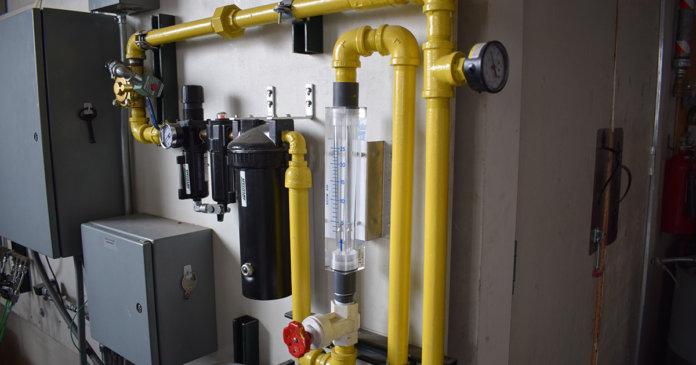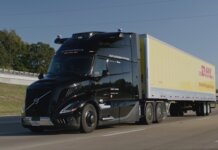Researchers from Colorado State University’s (CSU) Energy Institute recently received a $1.2 million grant from the U.S. Department of Energy’s Office of Energy Efficiency and Renewable Energy to look at making natural gas engines as efficient as diesel engines in the same class.
Specifically, the researchers will develop medium- and heavy-duty, on-road natural gas engines that are as efficient as traditional diesel engines often used in long-haul, 18-wheeler trucks, as well as garbage trucks and delivery trucks, according to a press release from CSU.
The team is working with Cummins Inc. and Woodward Inc. on the project. Researchers include associate professor Daniel Olsen, assistant professor Bret Windom and professor Anthony Marchese, who are all in the university’s Department of Mechanical Engineering.
“We are excited to get to work alongside respected industry partners like Woodward and Cummins to advance natural gas engine technology,” says Olsen.
Cummins and Woodward will provide the team with practical hardware for testing. Cummins is building a single-cylinder, 2.5-liter natural gas engine to be used as a key research tool for the project; Woodward is contributing combustion, ignition and fuel delivery technology, and advanced engine controls.
“As we look to provide solutions for commercial vehicles in a carbon-constrained world, natural gas will be an increasingly important option, and discovering breakthroughs in spark-ignited natural gas engine thermal efficiency will complement the clean diesel technologies on the market today,” comments Robin Bremmer, director of advanced alternative fuels and ignition systems at Cummins. “We look forward to collaborating with the very talented researchers from CSU as they utilize the excellent analytical and experimental capabilities located at the CSU Powerhouse Energy Campus.”
The team is proposing to break down technological barriers, such as the knock and misfire limits, to optimize combustion and improve natural gas engine efficiency. They plan to use a three-pronged approach. First, they will use a laser spark-ignited rapid compression machine (RCM), an experimental device that simulates a single compression stroke of an internal combustion engine, to study the chemical kinetics and combustion of natural gas. Second, they will use a cooperative fuel research (CFR) engine to study how gas composition impacts end gas auto-ignition, the phenomenon that leads to engine knock.
Third, using lessons learned from the RCM and CFR engine studies, the team will develop engine models to direct the design of the combustion-related components in a specially built Cummins engine for final testing and system optimization. Woodward’s advanced combustion, fuel delivery and state-of-the-art combustion control technology will also play a role. These contributions will enable sustained operation of controlled auto-ignition, minimizing knock margin conservatism, explains CSU.
The team is set to begin work on the three-year project this summer.






